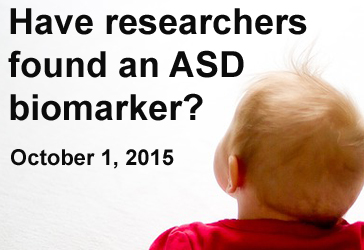Check out other stories from the Latest News
Newly Found Biomarker May Aid in Autism Diagnosis
By Chelsea E. Toledo, M.A. on October 1, 2015

Background: Autism spectrum disorder (ASD) is a neurodevelopmental condition characterized by social, communicative, and behavioral differences. Research has shown that certain activity within the brain – where calcium signaling plays a significant role in communication between neurons – is dysfunctional in ASD, impacting learning and memory.
What’s New: On September 22, 2015, the journal Translational Psychiatry published a study exploring a defect in calcium release as a possible biomarker for ASD. The researchers examined skin cells from male Caucasian donors with different genetic variations of the disorder, as well as from typically developing controls. They discovered a defect in calcium signaling within cellular membranes in the skin samples taken from donors with ASD.
Why it’s important: The cellular location of the defect – in a part of the cell called the endoplasmic reticulum – has been linked to cognitive, digestive, and immune function. While no widely accepted biomarkers currently exist for ASD, further study of the calcium signaling defect could lead to early diagnostics and targeted treatments for the disorder.
Help me understand :
| Source(s) : |
| Tweet |

